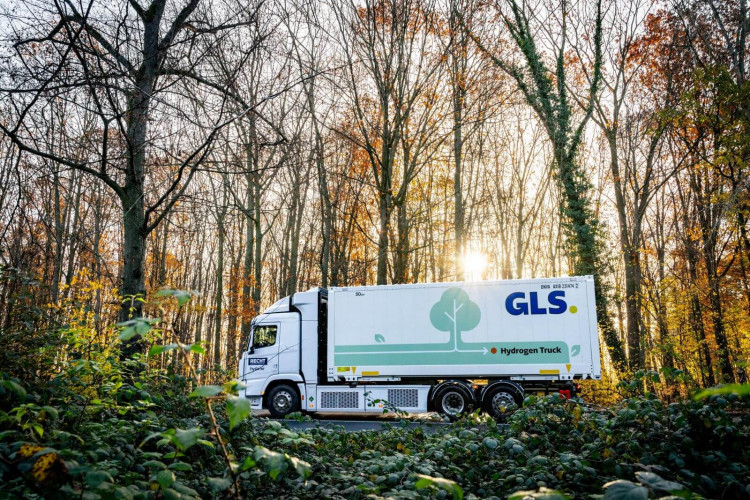GLS Germany is testing its first hydrogen-powered Hyundai truck with a range of 380 kilometres in long-distance transport operations.
The hydrogen-powered Hyundai has a 31-kilogram hydrogen tank, a range of up to 380 kilometres per filling and the capacity to transport up to 1,300 parcels per trip. Refuelling will take place at public infrastructure sites in Wesseling and Frechen, explains GLS.
In collaboration with the parcel carrier’s partner company Recht Logistik and vehicle rental firm hylane, the truck is actively used on the main route for collecting customer parcels.
Since its deployment, the vehicle has covered over 8,500 kilometres, delivering nearly 50,000 packages with minimal emissions.
The nationwide deployment of the hydrogen truck is part of GLS Germany’s broader efforts to explore innovative solutions for long-distance transport.
“As GLS Group, we are currently testing alternative, low-emission drive types with our companies and network partners in over 20 European countries as well as in Canada and the USA. In addition to the growing number of electric vehicles in local transport, which we use to deliver our parcels on the last mile every day, long-distance transport is increasingly coming into focus with innovations and pilot projects. The first vehicles are already being used in regular operations. For GLS Germany, the use of the first hydrogen truck is a further milestone in the implementation of the Climate Protect sustainability strategy,” says Holger Immen, Chief Compliance and Sustainability Officer GLS Group.
Region manager Gero Liebig highlights the advantages of the hydrogen truck: “The hydrogen truck is very quiet in operation, which means that night deliveries are possible at any time, even in populated areas. The perfect coordination of steering and suspension creates a pleasant driving experience, which has a positive effect on the stress and health of the person driving.
However, the company doesn’t hide the challenges the new drive provides. This includes a time-consuming 15-minute refuelling process and the limited availability of refuelling options that necessitate careful planning in day-to-day operations.
Currently, the hydrogen truck is used in North Rhine-Westphalia, but GLS aims to expand its operations to cover the entire country shortly.






